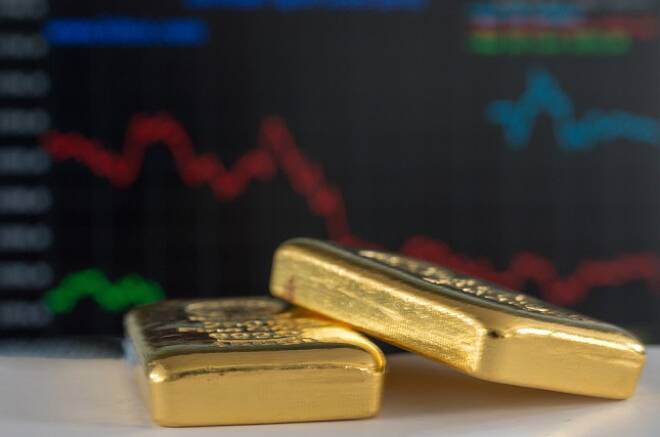Advertisement
Advertisement
Price of Gold Fundamental Weekly Forecast – Short-Term Volatile; Long-Term Up Trend Supported by Central Banks
By:
Short-term traders need to be patient about fiscal stimulus. Long-term investors should watch for a buying opportunity if gold spikes lower.
Gold futures closed lower last week as traders shifted their focus from possible U.S. fiscal stimulus to the Tuesday’s presidential election. The catalyst behind the price action was the movement in the U.S. Dollar.
As much as the brokers and some of the news services put it out there, gold is not a safe-haven asset. It’s an investment and a store of value. Nearly all the way down from its summer top, they have been pushing the agenda of gold being a safe-haven. This has led to a few short-term technical bounces, but the overall trend has been determined and controlled by the movement in the greenback.
Last week, December Comex gold settled at $1879.90, down $25.30 or -1.33%.
Long-Term Bullish Monetary Stimulus
Monetary stimulus comes from the central banks or in the United States, the Federal Reserve. They are committed to holding interest rates near zero for the next three years. This is long-term bullish for gold. All of the major central banks are being accommodative at this time. This means gold will be supported.
BOJ Holds Monetary Stimulus Steady
Last week, the Bank of Japan (BOJ) trimmed its economic growth and inflation forecasts for the current fiscal year but offered a more upbeat view on the recovery outlook, signaling that it has delivered enough stimulus for the time being.
As widely expected, the central bank kept monetary policy steady, including a -0.1% target for short-term interest rates and a pledge to guide long-term rates around 0%.
However, BOJ Governor Haruhiko Kuroda said the bank was ready to extend the March 2021 deadline of its crisis-response programme to help struggling companies, and take additional monetary easing steps if necessary.
Fed Wants Fiscal Stimulus Help
Meanwhile, Federal Reserve officials have been pressing Congress to provide more fiscal help to the U.S. economy, and with good reason: The central bank is running out of ways it can help. The central bank has kept policy extraordinary loose, continuing to offer its lending and market-boosting programs, and now resolving that it likely won’t raise short-term interest rates for years.
While no Fed officials ever would acknowledge that monetary policy ammunition is running low, and in fact it would insist to the contrary, there appear to be few weapons left in the Fed arsenal.
ECB Commits to Take New Action
The European Central Bank (ECB) left its ultra-easy policy unchanged last Thursday but hinted at more support in December for a Euro Zone economy struggling with a fresh wave of the coronavirus pandemic.
“The Governing Council will recalibrate its instruments, as appropriate, to respond to the unfolding situation and to ensure that financing conditions remain favorable to support the economic recovery and counteract the negative impact of the pandemic on the projected inflation path,” the ECB said in a statement.
With new restrictions in Europe that raise fears of a recession as large parts of the services sector are shut down again, the ECB has little choice but to extend and expand its 1.35 trillion Euro Pandemic Emergency Purchase Program (PEPP), a move that is likely to come at the bank’s next meeting on December 10.
Weekly Forecast
This week’s election is important in terms of the size of the next fiscal stimulus package. We believe there will be new fiscal stimulus no matter who wins the election, but the package will likely be bigger over the long-run if Democratic Joe Biden wins.
Ultimately, it will be the direction of the U.S. Dollar that determines which way gold will move. If the dollar spikes substantially higher then gold is likely to plunge, but losses will be limited due to the accommodative central banks. In other, words it could create a major buying opportunity.
In other news, the Reserve Bank of Australia (RBA) is expected to trim its benchmark interest rate from 0.25% to 0.10% and announce a new program to buy long-term bonds.
Short-term traders need to be patient about fiscal stimulus. Long-term investors should watch for a buying opportunity if gold spikes lower.
For a look at all of today’s economic events, check out our economic calendar.
About the Author
James Hyerczykauthor
James Hyerczyk is a U.S. based seasoned technical analyst and educator with over 40 years of experience in market analysis and trading, specializing in chart patterns and price movement. He is the author of two books on technical analysis and has a background in both futures and stock markets.
Advertisement
